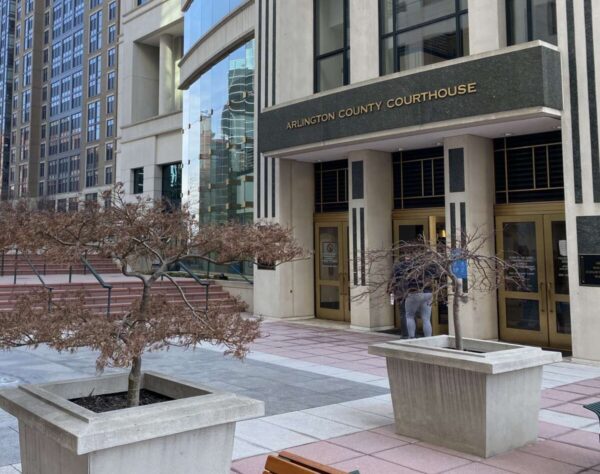
Arlington County is shifting its restorative justice efforts to local nonprofits.
During the County Board meetings held this weekend and last night, members voted to shift nearly $200,000 to nonprofits that are set to continue Arlington’s restorative justice push.
This includes $91,029 in unspent grant money that will go back to the charitable foundations that provided it. Then, the money will be “re-awarded” to the county’s nonprofit partner, Restorative Arlington.
Additionally, $100,000 is being provided by the county as one-time funding to another locally-based nonprofit, the Center for Youth and Family Advocacy. In April 2022, a Notice of Funding Availability was distributed in the community asking relevant nonprofits “to describe innovative programming to work within Arlington County on the goal of enhancing restorative justice, racial equity, and diversion efforts.”
A review panel selected the Center for Youth and Family Advocacy due to its “multi-pronged approach.”
It was more than a year ago when the county first announced its intention to transition Arlington’s restorative justice efforts “from a government-based initiative to a community-based initiative.”
In April 2021, the County Board asked the County Manager in its Fiscal Year 2022 budget guidance to start moving its restorative justice efforts — then also called “Restorative Arlington” — to an initiative run by local nonprofits.
“This transition will also allow for a more efficient approach to leveraging grant and endowment resources,” the guidance read.
Then, in May 2022, the county launched its new “Heart of Safety” program after two years of work and planning. A program of this nature was also what Arlington’s top prosecutor, Commonwealth’s Attorney Parisa Dehghani-Tafti, promised during her 2019 campaign.
A month later, in June 2022, Restorative Arlington officially transitioned “from a public program rooted in the County Manager’s office to a private nonprofit,” per director Kimiko Lighty at Tuesday’s County Board meeting.
Board Chair Katie Cristol told ARLnow late last week that this had always been the intention. The county’s role was to act as an “incubator” and “fiscal agent” with grants for a limited amount of time while the nonprofits worked to get set up and ready to take on the programs.
“As the government, the relationship with restorative justice has always been sort of unusual from the start… the goal has always been ultimately to have a community-based provider,” Cristol said. “Community-based allows this initiative and this effort to truly be centered on the needs of the individuals who were harmed and being able to bring about that restitution and reparation. That’s opposed to institutions, especially criminal justice institutions, that are always going to have interests — important [ones] — but interests other than the needs of the individual who was harmed.”
While local officials might say this was the intent all along, some feel that this is a departure from the original aim.
Brad Haywood, the county’s chief public defender, said he was a bit “surprised” by the move, particularly because they had someone from their office go to all the planning sessions, helping to build the program. Haywood feels like it’s somewhat “a change of plans” from the initial intent.
“We haven’t been told much,” he told ARLnow. “We felt like we were building momentum with Arlington leading the way.”
Nonetheless, Haywood is “optimistic” that Arlington’s restorative justice programs will continue in a manner that will benefit residents — particularly if multiple programs meeting several needs arise out of the shift to local, nonprofit partners.
“Then, that would be value-added,” he said.
Cristol noted at Tuesday’s meeting that this move does not mean the county will no longer be part of local restorative justice efforts.
“The idea of shifting the locus of restorative justice to a community-based organization, which has always been the goal, does not mean that government does not continue to play a role,” said Cristol. “We want our agencies that have been part of traditional justice to be partners in shifting towards a more restorative approach.”

